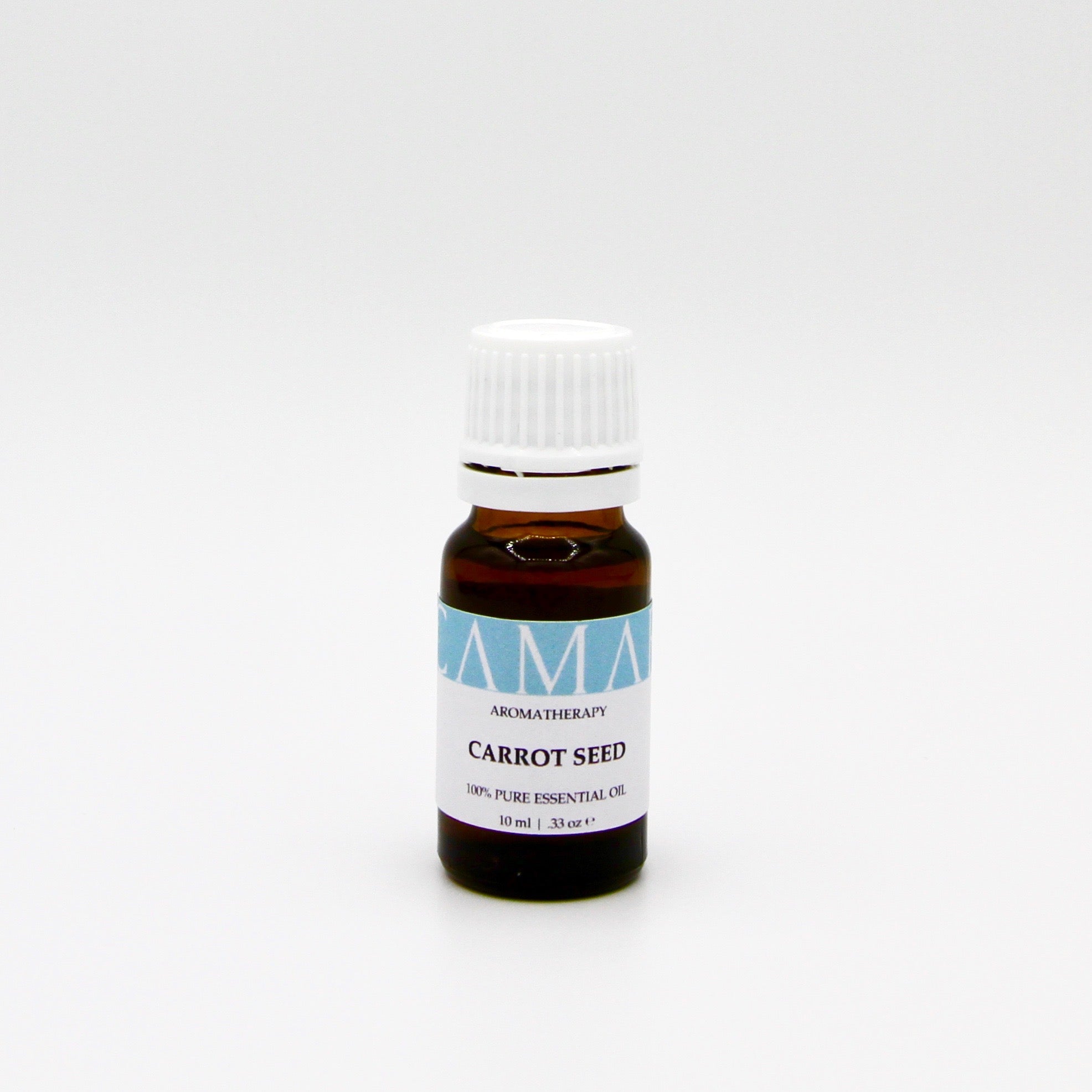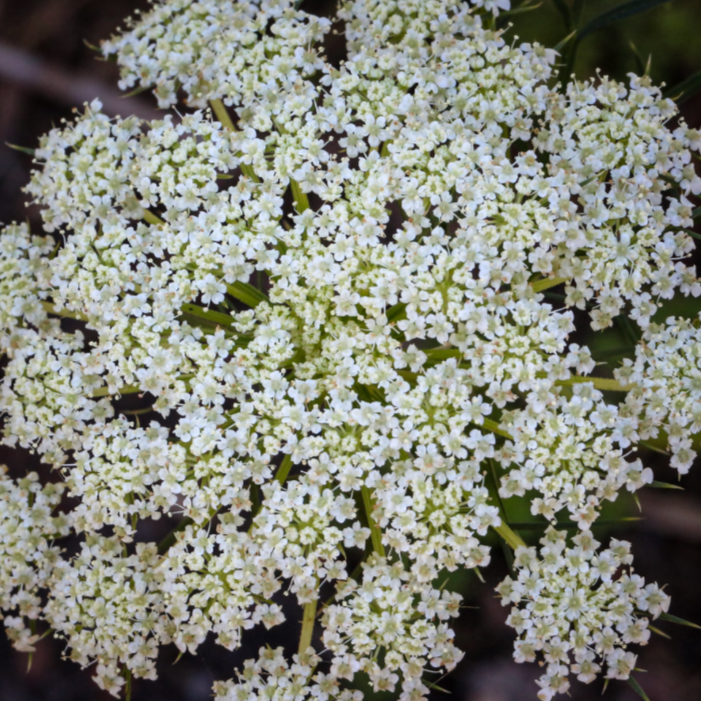

A familiar, healthy and beneficial humble plant, that contains valuable amounts of vitamins A, C, B1 and B2. Usually, one would think of carrot - as the edible orange root, with fine fern-like leaves, known commonly as the annual or biennial herb D. carota ssp. sativus, and another variety in contrast has a tough woody white root, D. carota ssp. carota. The first is the usually used in Infused oil.
The dried seeds of the wild carrot begins in spring and summer, with the fine green tops that sprout first, then becoming short and coarse, and the stem becomes hairy. Within the first year, the carrot is building up the stout taproot that stores large amounts of sugars for the plant to flower in the following year. By the second year, umbels of mature white lacy flowers, with purplish centres, are able to be harvested in summer. Overall, the herb may grow close to a metre - in the right conditions.
The seeds helps to ease colic, kidney and digestive disorders. Commonly and effectively used in skin care, as it is particularly beneficial for clogged or neglected skin, as it is revitilising and toning, helps with mature complexions, wrinkles, and aids in minor irritations such as dermatitis, eczema, psoriasis, and rashes. Helps to relieve accumulation of toxins, arthritis, gout, and rheumatism. Beneficial for the digestive system, for anemia, anorexia, colic, indigestion and liver congestion.
The carrot was regarded as having great medicinal value in Ancient Greece and the name originates from the Greek word "Carotos". Also, in Chinese tradtion - it helped treat dysentery & to remove worms.
Blends well with : Cardamon, Cassia, Cedarwood, Geranium, Juniper, as well as Citrus and Spice oils.
Choose options


